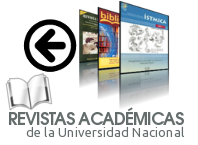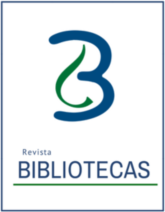Difficulties of Millennials on the Competitiveness of Tech Companies during 2017
DOI:
https://doi.org/10.15359/rb.37-1.4Keywords:
Millennials, Employment Rotation, Lack of Motivation, Lack of Compromise, Competitiveness, Technologies, Pearson Coefficient, Costa Rica.Abstract
The following investigation pertains the study of different articles and the application of a field study, in order to determine the positive correlation between the variables: employment rotation, lack of motivation and lack of compromise of the Costa Rican Millennials; as well as, the impact in the competitiveness of the technological companies. The investigator made a study and applied a survey, in the tech company Fiserv CR, in order to obtain relevant information, and with a Pearson Coefficient, he was able to prove the affinity level between the mentioned variables, test his hypothesis and stablish conclusions recommendations.
References
Alarcón, D. (2015). Estilo de vida de los mileniales. Recuperado de: http://www.eltiempo.com/estilo-de-vida/gente/generacion-millennial-jovenes-nacidos-entre-1981-y-el-2000/15860315
Álvarez, E. (2014). La generación del milenio o Generación Y. Recuperado de: http://www.colombiadigital.net/actualidad/articulos-informativos/item/6210-la-generacion-del-milenio-o-generacion-y.html
Andert, D. (2011). Alternating leadership as a proactive organizational intervention: Addressing the needs of the Baby Boomers, Generation Xers and Millennials. Recuperado de: http://m.www.na-businesspress.com/JLAE/Andert84Web.pdf
Ángel, D. (2011). La hermenéutica y los métodos de investigación en ciencias sociales. Colombia: Universidad Autónoma de Manizales.
Babbie, E. (2000). Fundamentos de la investigación social. México, D.F.: International Thomson Editores.
Banco Central de Costa Rica. (2017). Plan macroeconómico 2017-2018. Recuperado de: http://www.bccr.fi.cr/publicaciones/politica_monetaria_inflacion/PM_2017-2018.pdf
Benvenuto, S. (2014). ¿Qué son los millennials? ¿Eres tú uno de ellos? Recuperado de: http://www.batanga.com/curiosidades/7936/que-son-los-millennials-eres-tu-uno-de-ellos
Bisquerra, R. (2000). Métodos de investigación educativa. Barcelona: Grupo Editorial Ceac, S.A.
Davis, K., y Newstrom, J. (2003). Comportamiento humano en el trabajo. (11a. ed.). Estados Unidos de América: McGraw Hill.
EcuRed. (2017). La investigación no experimental. Recuperado de: https://www.ecured.cu/Investigaci%C3%B3n_no_experimental
Emeagwali, S. (2011). Millennials: Leading the charge for change. Recuperado de: https://eric.ed.gov/?id=EJ925286
Fernández, A. (2012). Sociedad milenial. Recuperado de: https://www.abc.es/20121103/sociedad/abci-millennials-generacion-201211021603.html
Gibson, L. y Sodeman, W. (2014). Millennials and technology: Addressing the communication gap in education and practice. Recuperado de: https://hpu.edu/CBA/block-left-column/gibsonPublication.pdf
Hernández, R. Fernández, C., y Baptista, P. (2010). Metodología de la investigación (5a.ed.). México: McGraw Hill.
Hewitt, M. y Ukpere, W. (2012). Leadership challenges associated with the management of Generation Y employees: A proposed theoretical model. Recuperado de: http://search.proquest.com/openview/4b6aa3631b349986107e43fc70cabc93/1?pq-origsite=gscholar&cbl=816394
Hroncich, C. (2017). Does the changing workforce impact IT? Recuperado de: http://www.pharmtech.com/does-changing-workforce-demographic-impact-iiot
Levy, Y., y Ellis, T. J. (2006). A systems approach to conduct an effective literature review in support of information systems research. Informing Science: International Journal of an Emerging Trans discipline, 9 (1), 181-212.
Meister, J. y Willyerd, K. (2010). Mentoring millennials. Recuperado de: http://managingmultigenerationalworkforce.pbworks.com/f/Millenium.pdf
Méndez, R. (2014 a). Teoría del liderazgo: Material para el curso de Administración de Proyectos II capítulo: Habilidades del gerente de proyectos. Cartago, C.R.: Instituto Tecnológico de Costa Rica.
Méndez, R. (2014 b). Teorías del aprendizaje y de la inteligencia: Material para el curso de Administración de Proyectos II Cap: Habilidades del gerente de proyectos. Cartago, C.R.: Instituto Tecnológico de Costa Rica.
Morgan, G. (1986). Images of Organization. Estados Unidos de América: Sage Publications Inc.
Nava, M. (2014). La paradoja de la generación del milenio. Recuperado de: https://www.bbvaresearch.com/publicaciones/la-paradoja-de-la-generacion-del-milenio/
Organización de Técnicas de Estudio. (2017). El método transeccional. Recuperado de: http://www.tecnicas-de-estudio.org/investigacion/investigacion39.htm
Ortega, C. (2015). Mileniales empleados o emprendedores. Recuperado de: http://www.youngmarketing.co/millennials-empleados-o-emprendedores/
Ramos, E. (2008). Métodos y técnicas de investigación. Recuperado de: https://www.gestiopolis.com/metodos-y-tecnicas-de-investigacion/
Retamal, G. (2007). Desarrollo de estrategias. Recuperado de: www.leonismoargentino.com
Sanz, S. (2015). Comparando a los mileniales con sus predecesores. Recuperado de: https://books.google.es/books?hl=es&lr=&id=hzWeDAAAQBAJ&oi=fnd&pg=PA9&dq=Sanz+2015+millennials&ots=7QHXe4Fy5o&sig=IQ-ESJUsOscT8Pmrr9dmH_1Pnoo#v=onepage&q=Sanz%202015%20millennials&f=false
Softline. (2016). Gerenciando equipos mileniales. Recuperado de: http://costarica.softlinegroup.com/como-gerenciar-equipos-de-millennials/
Suárez, M. (2014). El coeficiente de correlación de Pearson. Recuperado de: http://www.monografias.com/trabajos85/coeficiente-correlacion-karl-pearson/coeficiente-correlacion-karl-pearson.shtml
Downloads
Published
How to Cite
Issue
Section
License
Bibliotecas provide immediate open access to their content, based on the principle of facilitating research to the public free of charge and free of charge to promote the global exchange of knowledge.
The journal Bibliotecas is a publication hosted by a public higher education institution, which is supported by public resources. Since its inception, the magazine has offered all its contents free of charge without any restriction on the rights of: reading, downloading and printing in full text. Works published in libraries may be analyzed, quoted and reproduced in whole or in part, mentioning the original source.
The journal Bibliotecas is licensed under the Creative Commons Attribution - Non-Commercial - Share Equal, 4.0 International license; therefore, it is allowed to: share, copy and redistribute the material in any medium or format.

Este obra está bajo una licencia Creative Commons Atribución-NoComercial-CompartirIgual 4.0 Internacional.








